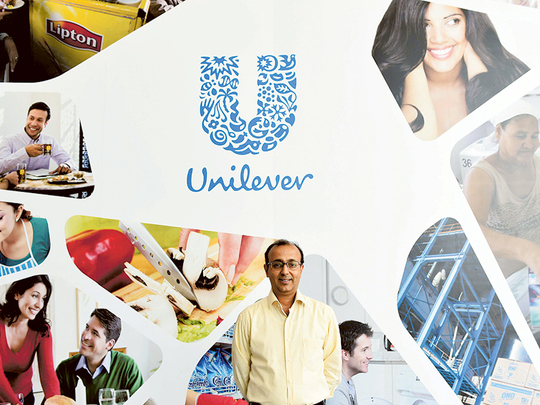
Dubai:
The Anglo-Dutch consumer goods giant Unilever’s new Dh1 billion plant in Dubai is on track for commissioning by late next year and hitting its full stride by early 2017. The investments, shared by Unilever and its suppliers, is the largest made to date in the region by the multinational on a greenfield project.
When the new plant — located in Dubai Industrial City — is up and running, Unilever will be looking to get up close and personal — literally — with regional consumers. The plant’s future production will cover broad spectrum of its personal care brands, extending from shampoos to skin lotions and a lot more. This plant as well as its existing facility in Egypt will also be the springboard for expanding its share in some of the African markets.
“There are still so many markets in the region where penetration levels for personal care products are still so low that there is potential to increase them by a factor of five to 10,” said Sanjiv Kakkar, Executive Vice-President for the North Africa, Middle East, Turkey, Russia, Ukraine and Belarus territory. “Now, if everyone in the Middle East and North Africa were to brush their teeth every day, the (oral care) market would be growing by a factor of 10.
“Even in markets such as the UAE and Saudi Arabia, usage in certain categories is still significantly lower compared with other European markets and with similar per capita income levels. As such, there’s enormous scope given the GDP [forecasts], the growing population numbers, etc”
The decision on a new plant was taken in early 2014. Unilever had also looked at options of expanding capacities at its existing manufacturing bases in Saudi Arabia and Dubai before deciding to go ahead with a brand new one. Another possibility that was also discussed was to keep importing from its network of manufacturing bases.
“Within Dubai we looked at various options [regarding the location] and Dubai Industrial City came out on top,” said Kakkar. “We had access to an area that could accommodate a large factory and could be scaled up further for future expansions.”
As such, Unilever’s existing plant in Jebel Ali — commissioned in 1998 — is the world’s largest for tea, with annual production at more than 45,000 tonnes annually. Unilever owns the generic Lipton brand.
Kakkar believes there’s still further growth that can be brewed from within the tea category. “No category is too mature for a good marketer — tea consumption might be heavy among the older generation here. But if you look at the young, there are still ways to get them involved in the category.
“Iced tea is one and we have a global joint venture with Pepsi, where it does all of the marketing. It’s still small but represents a fast growing space.
“We also introduced the ‘Chai Latte’, milk based tea with a number of flavours built around it and thus help us recruit new consumers. This is how categories are grown, even those deemed as too mature.
“And for the older generation, there’s green tea and fruit infusions, all processes by which we could raise the number of consumption occasions.”
Would any of this mean the possibility of new capacities at the Dubai tea plant? “By shifting some of the older machinery, there’s always scope to enhance productivity,” said Kakkar. “As for a new plant, there are no plans at the moment.”
While it sizes up possibilities to do more within personal care, Kakkar confirmed that gains are starting to be sighted from two recent brand relaunches.
It was mid last year that it relaunched the OMO detergent brand — “We were not really a big player until then, but now hitting close to a double-digit in Arabia,” said Kakkar.
“Another area is ice-cream — we are the largest globally but with minimal presence in the Gulf in the last 20 years despite some attempts made in the mid-1990s.
“But we went through a small seeding operation starting 2013 with the ‘Algida’ brand [and featuring the same brand logo as the Wall’s range]. It’s a category that requires a slow and steady approach, but in the UAE we are now a very close second player.
“I don’t think there will be a Big Bang relaunch for Algida, but it will be backed up by continuous investments such as at points-of-sale.”
As of now, the Algida range is being shipped in from a plant in Turkey.











